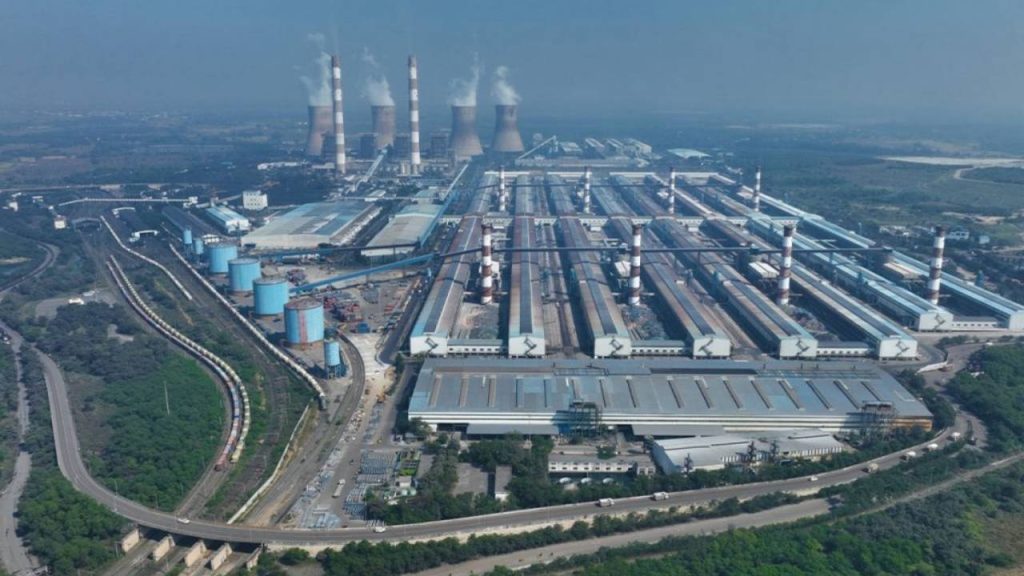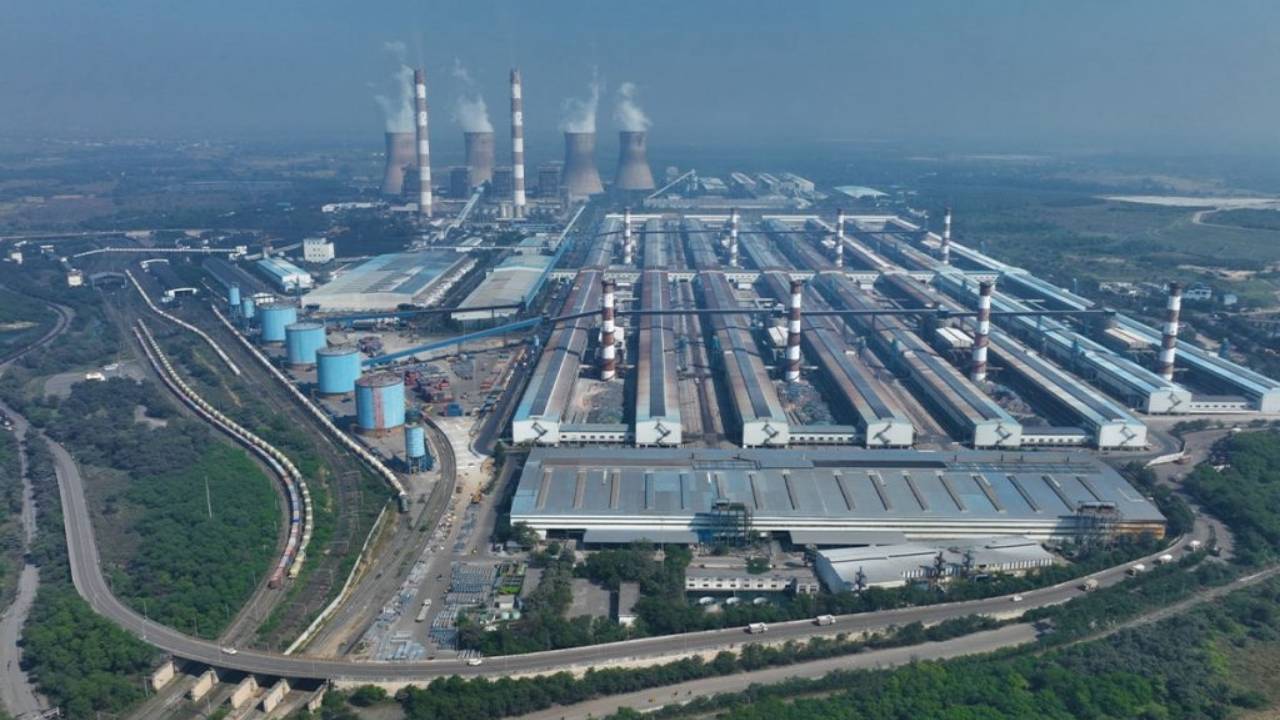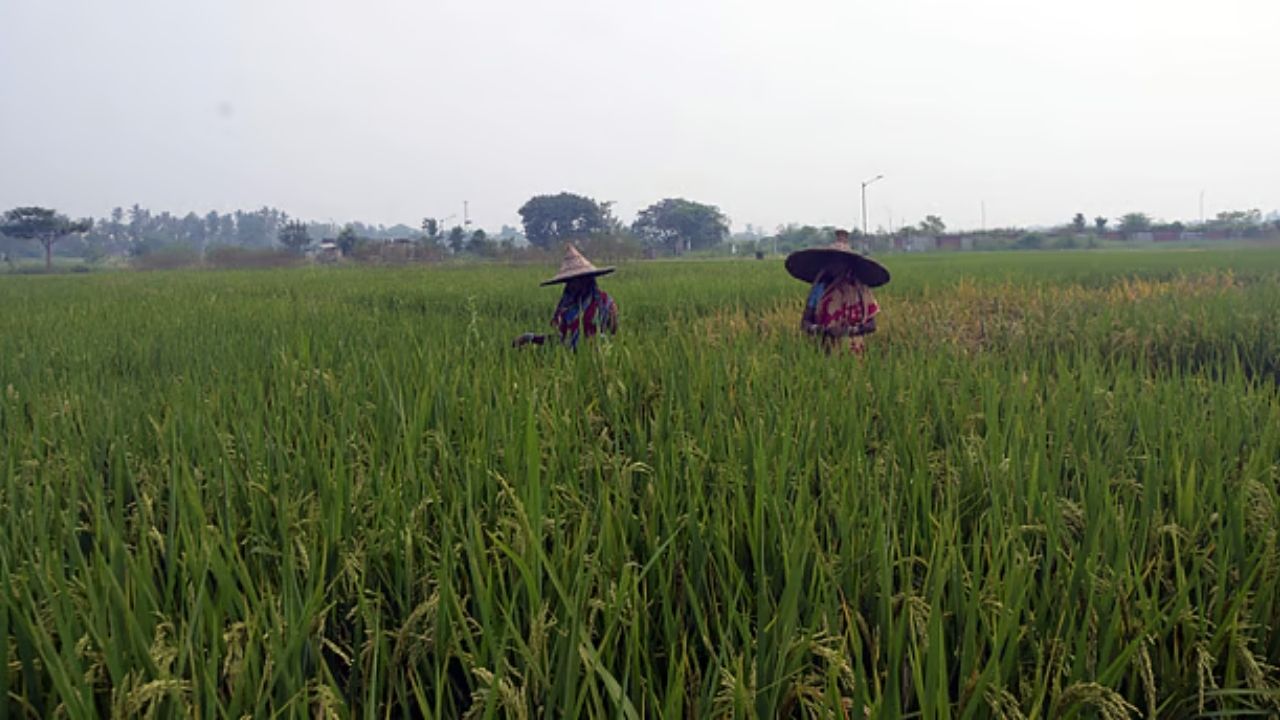In a significant move that signals Vedanta Aluminium’s commitment to boosting India’s position in the global aluminium market, the company has announced an expansion of its Primary Foundry Alloy (PFA) production capacity by 120,000 tonnes per annum (KTPA) at its Jharsuguda facility in Odisha. This expansion will not only meet the increasing demand from the automotive and engineering sectors but also position India as a competitive global player in aluminium manufacturing.
As one of the leading players in the Indian aluminium sector, Vedanta Aluminium is known for pushing the boundaries of technology, sustainability, and innovation. With this new expansion, the company aims to cater to the growing demand for high-quality primary foundry alloys used in the manufacturing of aluminium die-casting components. These alloys are critical in industries like automotive, which are increasingly looking for lightweight yet durable materials to meet modern engineering demands.

But what does this expansion mean for the aluminium market? What impact will it have on industries that rely on high-quality alloys for manufacturing? Let’s break it down in simple terms so you can understand not just the facts but also the broader implications of this move.
Vedanta Aluminium Increases Primary Foundry Alloy Capacity
| Key Topic | Details |
|---|---|
| Expansion | Vedanta Aluminium increases Primary Foundry Alloy capacity by 120 KTPA in Jharsuguda, Odisha. |
| Target Industries | Automotive, engineering, and die-casting industries. |
| Technological Upgrades | Incorporating advanced casting lines, degassing, and vertical chill casting. |
| Growth Rate | Global PFA market growing at a 5.8% CAGR; India’s demand growing at 6.5%. |
| Sustainability | Vedanta’s PFA meets international quality standards, including BS-VI regulations. |
| Projected Growth | 7% CAGR projected for the next 5 years in the PFA market. |
| Official Website | Vedanta Aluminium |
Vedanta Aluminium’s decision to increase its Primary Foundry Alloy capacity by 120 KTPA is a pivotal moment for the aluminium industry. With advanced technology, a focus on sustainability, and a clear understanding of market demands, the company is well-positioned to lead the way in producing high-quality alloys for the automotive and engineering sectors. This expansion not only benefits Vedanta but also strengthens India’s role in the global aluminium market, making it a more competitive and self-sufficient nation in the years to come.
Introduction to Primary Foundry Alloys (PFA)
Before we get into the nitty-gritty of this expansion, let’s first understand what Primary Foundry Alloys (PFA) are and why they matter. PFA are materials used in die-casting processes, primarily in the automotive industry. If you’ve ever wondered how car parts like engine blocks, transmission housings, or other structural components are made, die-casting is likely part of the process. It involves injecting molten metal into molds at high pressure to create precisely shaped parts.
Aluminium is one of the most common metals used in this process because it’s lightweight, durable, and can withstand high temperatures. Over the years, demand for these alloys has grown significantly, especially in industries such as automotive, where lighter and more fuel-efficient vehicles are being developed.

Why This Expansion Matters
Meeting the Growing Demand for Light Weighting in Automotive
The automotive industry is undergoing a massive transformation, with a strong focus on lightweighting. As fuel economy regulations become stricter, manufacturers are turning to lighter materials like aluminium to build more efficient, environmentally friendly vehicles. Electric vehicles (EVs), in particular, are a key driver of this demand because they need to be lightweight to maximize battery performance and range.
By expanding its PFA capacity, Vedanta Aluminium is positioning itself to meet this growing demand. As one of the largest producers of aluminium in India, the company is already well-positioned to supply the automotive industry with high-quality die-cast aluminium alloys that meet global standards.
The Role of Technology in This Expansion
This expansion isn’t just about increasing numbers. Vedanta Aluminium is also investing in state-of-the-art technology to improve the quality and efficiency of its PFA production. The company has implemented advanced casting lines from Befesa, a Spanish company that specializes in foundry technology. These casting lines incorporate features like in-line metal treatment, degassing, and vertical chill casting, which all contribute to producing superior alloys with fewer impurities.
These innovations are crucial because automotive manufacturers are demanding higher-performance alloys that can withstand more stress while maintaining lighter weights. In short, this technology is helping Vedanta Aluminium provide the best quality materials that meet the specific needs of the automotive and engineering industries.
Growth of the Global and Indian PFA Market
The global PFA market is growing at a 5.8% Compound Annual Growth Rate (CAGR), and India’s demand is even higher at 6.5% annually. As the demand for lightweight materials continues to increase globally, it’s projected that the PFA market will continue to grow at 7% CAGR over the next five years. This means there’s a significant opportunity for Vedanta Aluminium to expand its market share and support the growth of industries like automotive, aerospace, and engineering.
How This Affects the Indian Economy
Boosting India’s Aluminium Industry
India has long been one of the world’s largest producers of aluminium. With Vedanta Aluminium’s latest expansion, the country’s aluminium industry is set to grow even further. This development is not just about producing more metal—it’s about increasing the value-added processing of aluminium within India. This move helps shift the country from being a raw material exporter to a manufacturing powerhouse that can produce high-quality, value-added products.
This shift also has broader implications for India’s job market. By expanding its operations in Jharsuguda, Vedanta Aluminium is likely to create more skilled jobs in the region, ranging from production workers to engineers. These are jobs that require expertise in cutting-edge manufacturing technology, which can improve the skill set of India’s workforce.
Reducing Dependence on Imports
By increasing domestic capacity for PFA production, Vedanta Aluminium helps reduce India’s dependence on importing high-quality alloys. This is especially important as the country seeks to bolster its manufacturing sector and become less reliant on foreign suppliers. By producing these alloys domestically, India can ensure a steady supply of materials for its growing automotive sector, which in turn can support economic growth.
Sustainability and Compliance with Global Standards
One of the key features of this expansion is Vedanta Aluminium’s focus on sustainability. In today’s manufacturing world, being environmentally conscious isn’t just a nice-to-have—it’s a must. Vedanta’s PFA production meets international quality standards, including the BS-VI and CAFE emission regulations, which are particularly important in the automotive sector. These standards ensure that the materials used in vehicle manufacturing help reduce overall emissions.
Furthermore, the expansion plan includes eco-friendly practices that will minimize the environmental impact of the production process, helping Vedanta Aluminium stay aligned with global green manufacturing trends.
The Road Ahead: What Does This Mean for the Industry?
As Vedanta Aluminium ramps up its PFA capacity, the company is setting the stage for future growth and innovation in the aluminium industry. Not only is this move crucial for meeting domestic demand, but it also opens doors to international markets that require high-quality aluminium alloys for their manufacturing needs.
Other aluminium producers in India and around the world will likely take note of Vedanta’s success and may follow suit with similar expansions. This could lead to greater competition but also a more robust global supply of high-quality alloys that benefit industries like automotive, aerospace, and construction.
Practical Insights for Businesses
For businesses involved in manufacturing, this expansion presents an opportunity. If your company relies on die-cast aluminium parts, it’s a good idea to consider Vedanta Aluminium as a potential supplier. By sourcing PFA alloys from a company that’s investing in advanced technology and sustainability, you ensure that your products meet the highest quality standards.
Additionally, this expansion could lead to competitive pricing for PFA alloys in the future, as increased supply often brings costs down. Companies in the automotive and engineering sectors could benefit from these price reductions, enabling them to innovate further while keeping costs under control.
Odisha TEX 2025 Attracts Rs 7.8K Crore in Investment Proposals, Promises 53,000 Jobs
Odisha Government Approves ₹4,982.66 Crore Investment Boom: 23 Proposals Set to Transform the State
FAQs
What is Primary Foundry Alloy (PFA)?
PFA is a type of aluminium alloy used in the die-casting process, primarily for automotive and engineering applications. It is lightweight, durable, and highly suitable for making components like engine blocks and transmission housings.
Why is Vedanta Aluminium expanding its PFA capacity?
Vedanta is expanding its PFA capacity to meet the growing demand for lightweight and durable alloys in the automotive industry, especially as the sector moves towards electric vehicles and lighter, more fuel-efficient designs.
How will this expansion impact the Indian economy?
This expansion will boost India’s aluminium industry by increasing domestic production, creating skilled jobs, and reducing the country’s reliance on imported alloys. It will also support the automotive sector, which is a significant contributor to India’s economy.
How is Vedanta Aluminium ensuring sustainability in its production?
Vedanta Aluminium is implementing eco-friendly practices in its production process and ensuring that its PFA meets international quality standards, including the BS-VI and CAFE regulations.
What does this mean for the global PFA market?
With a growing demand for lightweight materials in industries like automotive, the PFA market is set to expand. Vedanta Aluminium’s expansion will help meet this demand, both in India and internationally.





